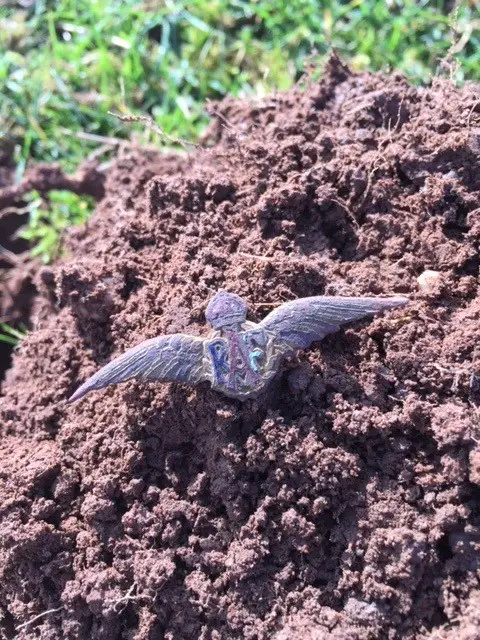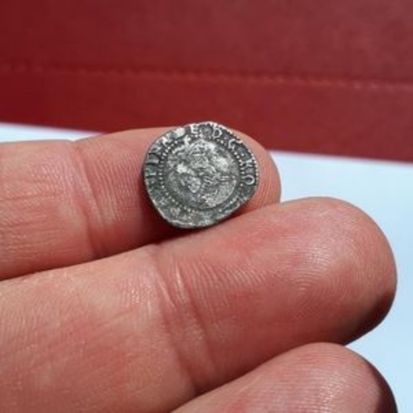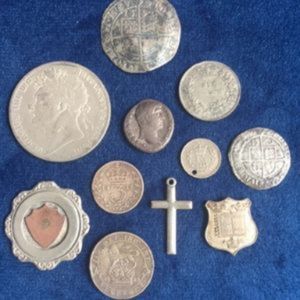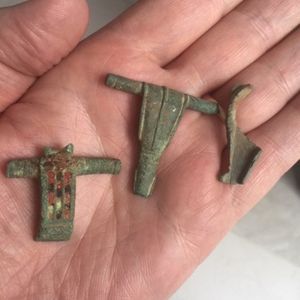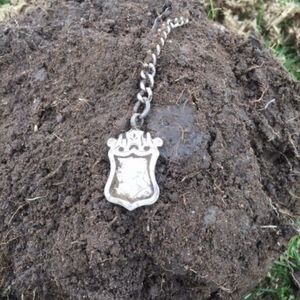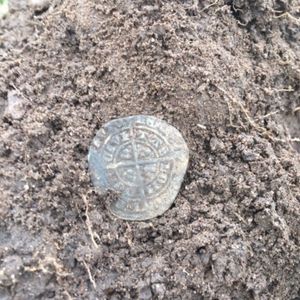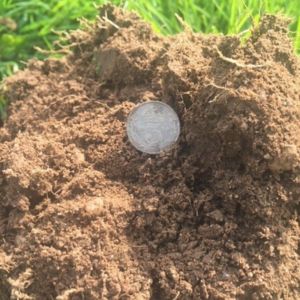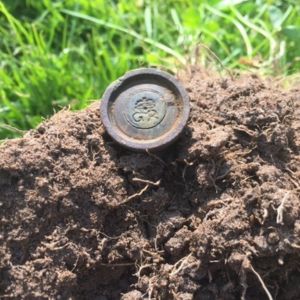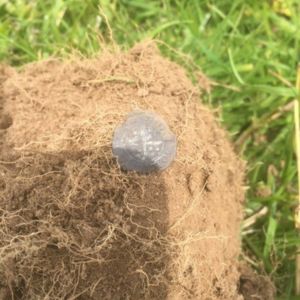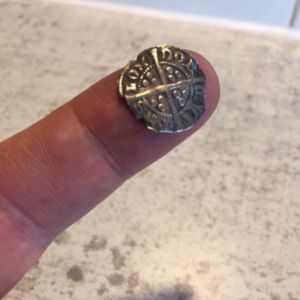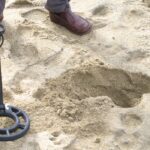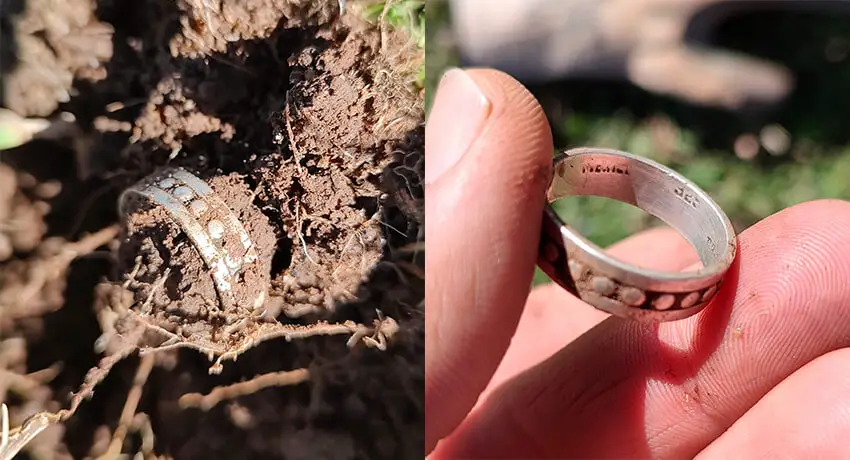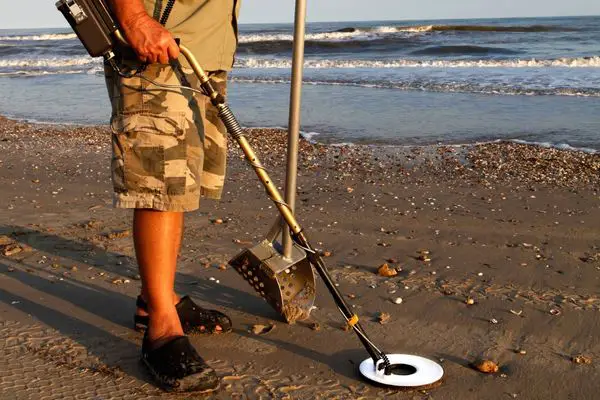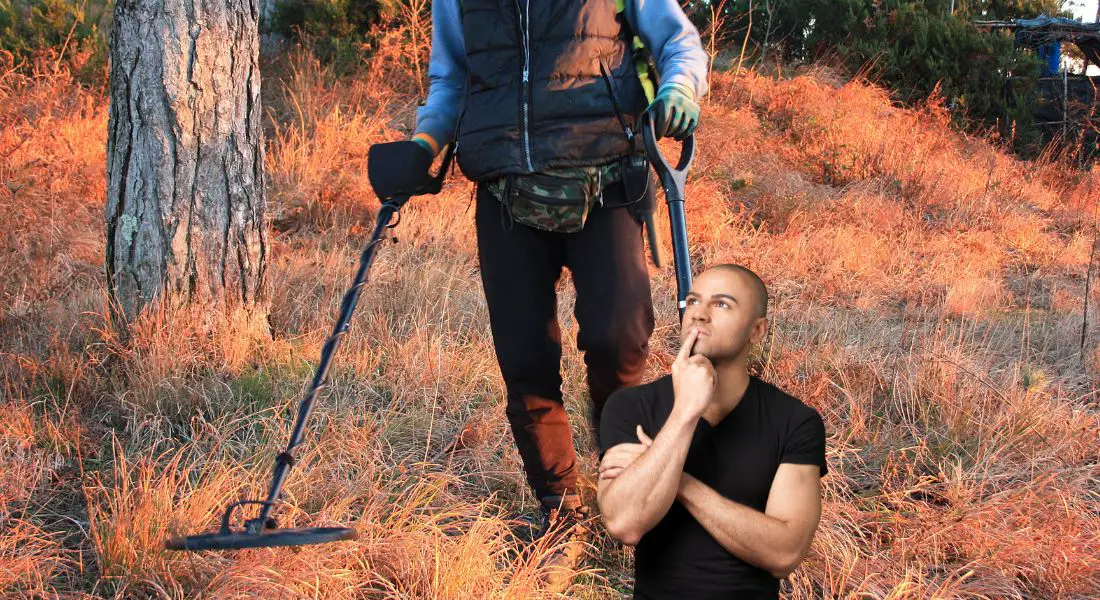What metals can a metal detector pick up?
One of the most common questions I get asked from people who have never dipped their toes into the world of metal detecting is “What can a metal detector detect?“.
This maybe closely followed by a particular type of metal or an object. Probably because they, or a family member has lost something that they would love to be found again.
Because I’ve been asked so many times, I thought it would be a good idea to write a short article covering the commonly asked questions as other people are probably thinking the same thing!
You would think that when a device is called a “metal detector”, it would give you a slight clue as to what it might be able to detect.
I’ve been caught out a couple of times when metal detecting on a beach when I thought it might be quiet. Young teenage boys can be challenging when they ask if it will pick up plastic!
The reply from me will always be….”it’s a metal detector….what do you think?”. A challenging question indeed for a teenage boy who should be in a school Physics lesson I suspect!
The fact still remains that people ask these questions and we’re always told that no question is stupid. The fact that questions are asked is the way we learn.
The final thing to add is that there are many types of metals out there in which many different objects are made from. These include old and rare items.
This is why it’s very important for anyone starting out in metal detecting to dig everything at first. There is always the danger that by rejecting some metals, you could miss the find of a lifetime!
I have a very useful article on metal detecting for beginners UK here. This would be a great place to start if you fancy exploring metal detecting further.
If you want to explore even further, I have an article discussing if metal detecting is worth it and also one on the best metal detector for beginners UK here for some well needed guidance.
If you are interested, I have a useful article on metal detector discrimination and metal conductivity here. Okay, let’s carry on with what a metal detector can detect with the most commonly asked questions.
What metals do metal detectors not detect?
Can a metal detector detect aluminium?
Yes, a metal detector can detect aluminium, (or aluminum in the US). Aluminium is very conductive so reacts very well to a metal detectors electromagnetic field.
In fact, many electric cables have an aluminium core because of its ease of electricity to pass through it. As this is highly conductive, it will tend to give high conductivity numbers on a detectors screen.
This can very often be in the same range as silver or copper so these signals must be dug if they are of a repeatible sound and stable target identification numbers.
I have a separate article on can metal detectors detect aluminium here. This type of metal doesn’t tend to be found in any buried object of any age or value, usually only modern trash or losses.
These typically can include parts from light bulbs, dog tags, stamped machine part tags etc. Again, these all must be dug as they fall into the range where good finds are.
Can a metal detector detect platinum?
Yes, a metal detector can detect platinum. Platinum is used almost exclusively as a precious metal in jewellery. I know it can be detected because I have previously found a platinum ring on a beach.

The ring gave a cracking sound when I visted a local beach for a few hours.
I plunged my sand scoop into the dry sand, gave it a shake and a shiny ring was left jangling at the bottom of my scoop.
The great thing was when I got home, I showed my wife to which she tried it on and it fitted perfectly!
She rarely takes it off now so no chance of selling it!
The chances of finding lost jewellery increases when beach detecting for two main reasons. One is that sun tan lotion on fingers causes jewellery to slide off and be lost forever.
The second is that when hands are plunged into cold sea water, fingers contract making them smaller so rings fall off. I have a useful article on beach metal detecting UK along with some top tips here.
A sand scoop is a must and I have an article on beach metal detecting sand scoops here.
Can a metal detector detect gold?
Yes, a metal detector can detect gold! I know it seems a silly question to ask but people do ask it so it’s a valid question. They just want to be sure before they invest in a metal detector.
Again, I’ve been metal detecting for a long time now and have been quite lucky. I know metal detectors detect gold as I have found gold over the years.
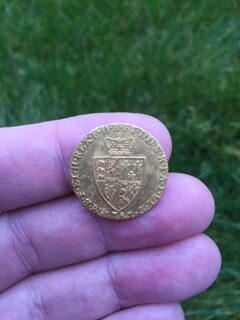
One of my pride and joys is my solid 22 carat gold, George III full spade guinnea dated 1787 in cracking condition.
I have to say that my heart was pounding out of my chest when I found this coin!
The short moral of this story is to always do the right thing. The farmer had kindly given me permission to search his land.
I felt honour bound to show him the coin expecting him to maybe keep it.
He would of then given me half the value. Instead, he admired the coin and then gave it back to me telling me to keep it as I did all of the hard work!
I still have the coin several years later!
Gold can return some quite low numbers on a metal detectors LCD screen and to the beginner, may get confused with trash like discarded foil. Anything that registers above iron must be dug at first.
Can a metal detector detect lead?
Yes, a metal detector can detect lead. The fact of the matter here is that by rejecting or excluding lead, you could be missing out on some very old artefacts indeed.
Lead, because of its nature can be easily melted at a relatively low heat and molded into many useful things. This is why it’s been used by people over the centuries.
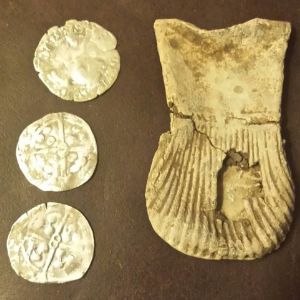
Typical finds that a detectorist might find are musket balls from flintlock firearms, molded iron pot repairs, lead tokens and bag seals.
If you’re really lucky, a Pilgrims Ampulla. These are hollow and made from lead.
They were originally filled with holy water, then sealed and sold to pilgrims who visited holy shrines in the medieval and Tudor periods.
Loops either side allowed them to be either sewn onto clothing or suspended around a pilgrims neck.
Embossed emblems designate where they may have come from. My friend had an incredible and also unique find.
He found a pilgrims ampulla and spotted that something was odd about it. When carefully opened up, it had 3 medieval hammered coins inside.
I have an article about medieval hammered British coins here.
Can a metal detector detect brass?
Yes, a metal detector can detect brass. Brass is an alloy of Copper and Zinc in which the quantities can be altered to suit its designated end use.
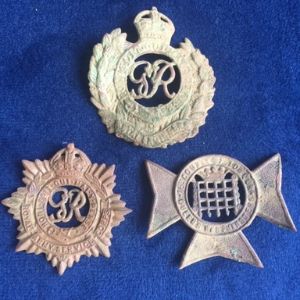
Brass has been used for hundreds of years because of it likeness visually to gold.
Because of the quantity of copper used in brass, this gives a highly conductive signal to a detectorist.
Many interesting finds emerge that are made of brass.
Many items a detectorist will see would be furniture escutchens and handles, old mechanical and electrical parts and horse harness decorations.
Other objects include hinges, buckles, bullet casings, keys, medals, army cap badges and buttons as examples.
Can a metal detector detect silver?
Yes, a metal detector can detect silver. I have many silver finds found over the years. Silver can give high conductive readings when in the form of larger, thicker coinage or artefacts.
Smaller, thinner silver coinage like medieval hammered coinage can come in with much lower numbers so this needs to remembered when deciding to dig or not to dig.
The thing is here, certain metals and a detectors operating frequency can have a bearing on how well you receive a signal, if you get an signal at all.
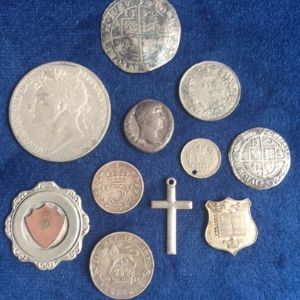
It’s a big topic but basically metal detectors all operate at different freqencies.
Lower frequencies love silver, larger, thicker and deeper targets. Higher frequencies love gold, small, thin and shallower targets.
I have a much more in depth article that explains more about metal detecting frequencies and metals.
With affordable multi frequency detectors, there is now no need to comprimise with a single frequency machine.
You can read my article about the benefits of multi frequency detectors here.
Silver objects, as you would imagine mostly get found as coins or jewellery. Some silver comes out of the ground shiny and some come out black and tarnished which is normal.
This can be easily cleaned but careful consideration is needed before cleaning any coin or artefact made of silver. I have an article on how to clean old coins here.
Can a metal detector detect copper?
Yes, a metal detector can detect copper. Copper is one of the most common metals you’ll find as a detectorist. Many lower value coinage will be made from copper.
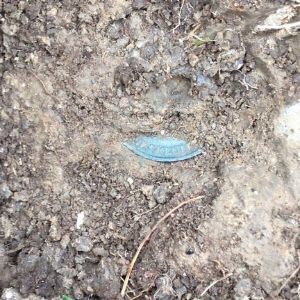
You will from time to time find coin sized discs that are smooth. These would of been coins once upon a time.
Because copper is quite soft, over years of circulation, coins would wear smooth.
Copper is highly conductive which is why it is used for electrical wire.
Mid sized to larger copper coins will be indicated quite high up on your detectors scale.
When some copper is dug, it will have a green patina covering it which is quite normal. In most cases, it simply is not worth trying to remove it.
Collectors of rare copper coinage would prefer it green in fact!
Can a metal detector detect bronze?
Yes, a metal detector will detect bronze. Very much like brass, bronze mainly consists of copper but this time is alloyed with tin.
Obviously bronze has been used for a long time considering that we have a period in our history called The Bronze Age. Many things use bronze from everyday utensils to war medals and jewellery.
Bronze is very hard wearing so was perfect for everyday items.
Final thoughts
Okay, so basically we’ve established that if something is made from metal, a metal detector will detect it. The only exeption to this is if the find is so small, so thin and so deep that it’s beyond detection.
It is also very important to remember that in the UK, we have hundreds, if not thousands of years of turbulent history. This means we have a wealth of metal finds beneath our feet.
Detectorists in the UK tend to dig everything and anything which is non-ferrous because all non ferrous signals have the potential to be something amazing.
Keep your discrimination to a minimum or if your detector lets you, have zero discrimination and adjust your tones so that iron will give you a very low tone and anything non-ferrous a higher tone.
I hope this article has answered some questions or even sparked your imagination to look further into the hobby of metal detecting.
Stay safe and happy hunting!

Unbeatable Multi Frequency!
You can now get the ultimate power of multi frequency technology over single frequency detectors with the Minelab Vanquish range of detectors.
The entry level Vanquish 340 now gives you ultimate depth, stability and sensitivity on all target types in every soil, including wet beach sand.



